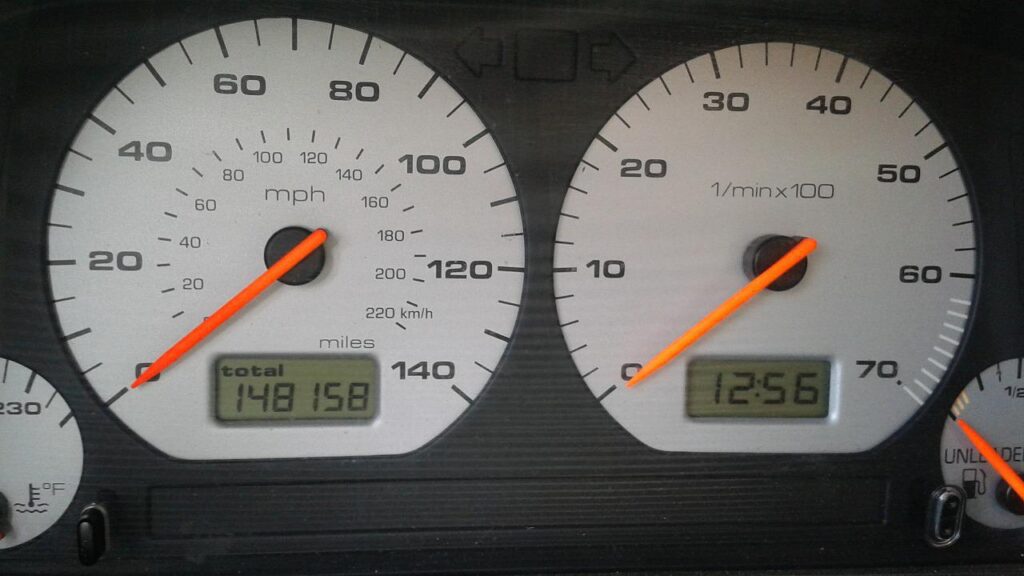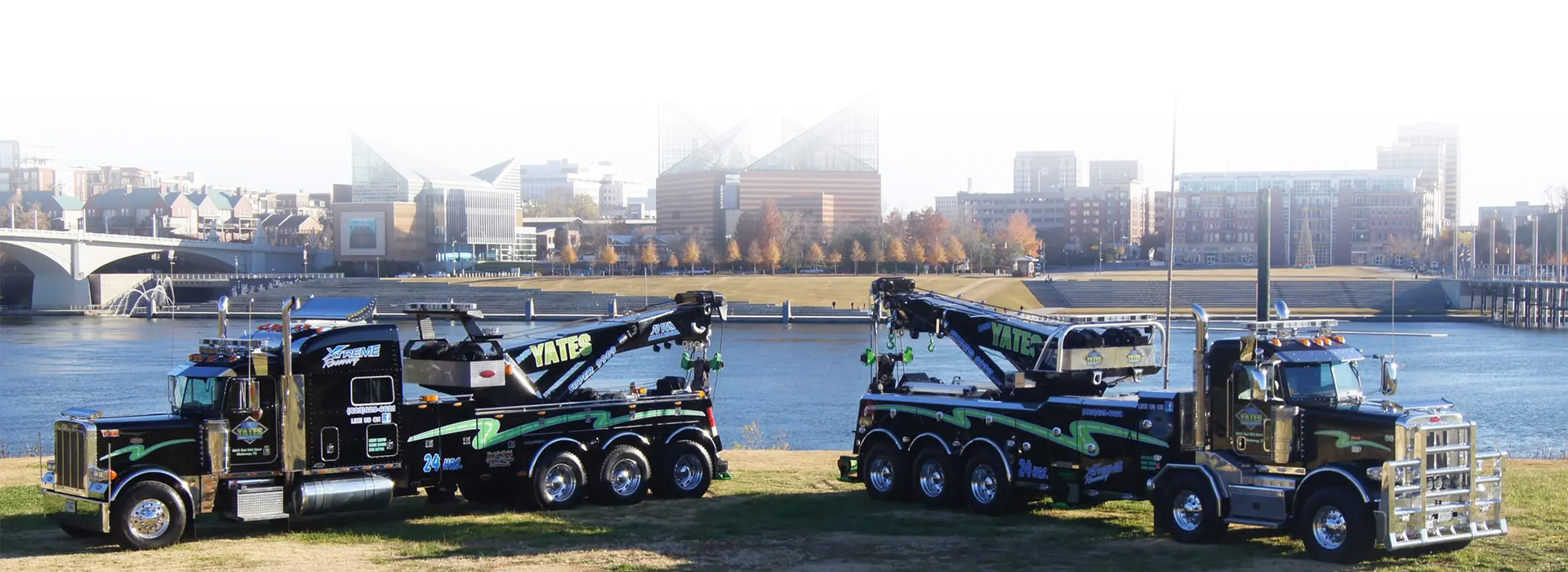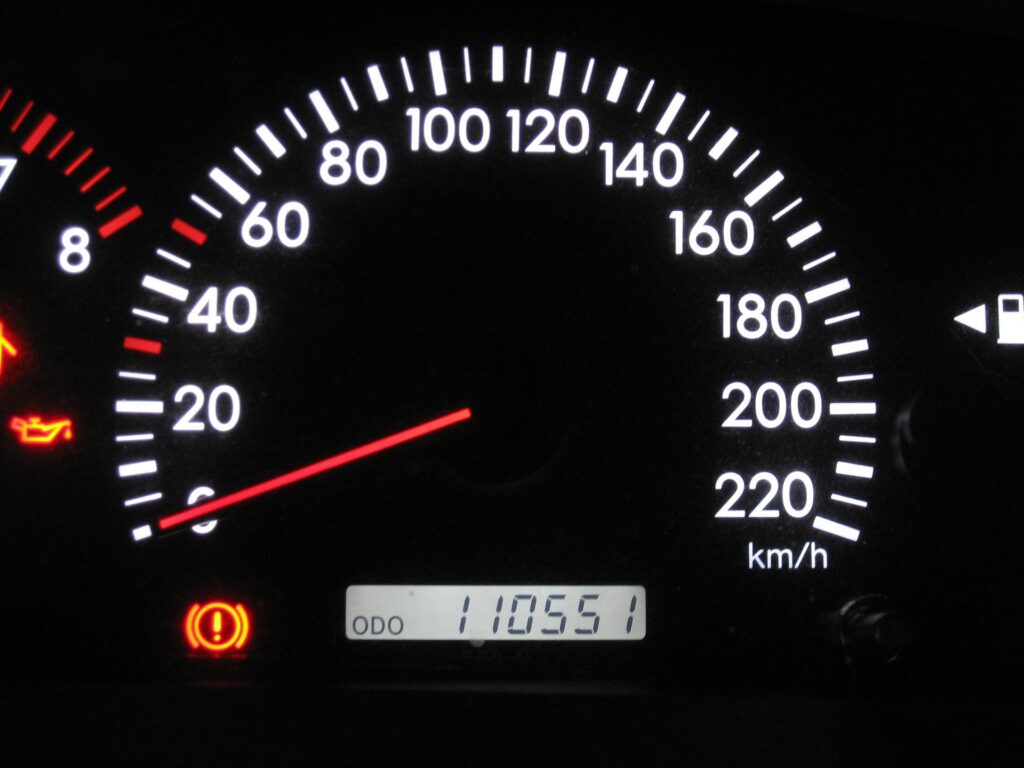Nowadays people are starting to hold onto their cars longer than before. With the increase in price for newer vehicles, car owners would rather put more miles on their current car than pay the higher price for a newer one. With that being said, what happens to your car after the odometer rolls past one hundred thousand miles? Think of miles as the aging of your vehicle. The more miles you put on your car the more wear and tear it undergoes. It’s important to your vehicle’s performance that your keep your 100K+ mile car well maintained. Here, Doug Yates Towing & Recovery discusses the best ways to care for your car with over 100K miles.

Care For Your Car
High-Mileage Oil
The first thing you can do to care for your car that has over 100K miles is use high mileage oil. Special additives in high-mileage oil are designed to give extra support to older engines. These older engines usually suffer from breakdowns caused by leaks, deposits, friction, and/or sludge. High-mileage oil contains substances such as anti-wear or friction-reducing agents that lessen engine wear. These additives boost performance and provide protection or your older vehicle.
Routine Oil Changes
As time passes and you use your vehicle, dirt can mix in with your engine’s oil. This can lead to clogged filters and eventually cause detrimental wear on your engine. Additionally, the high-mileage oil will ultimately wear down, meaning that the oil used won’t be as effective as well as it should be. To make sure that your oil is working properly, schedule an oil change roughly every 3 months or every 3,000 miles.
Fuel Injector Cleaner
Fuel injector cleaner liquid is inexpensive and simple to use. You can purchase fuel injector fluid in most gas stations and all car maintenance shops. Once you acquire a bottle, simply pour a bottle into your gas tank roughly every 3,000-5,000 miles to keep the system clean and working efficiently.
Clean Your Brake Fluid
It’s recommended to have a brake system flush approximately every 60,000 miles. This cleaning clears out the brake fluid, which accumulates dirt and other contaminants. If left undone, the build-up of dirt and grime can reduce braking efficiency. Next time you get your oil changed, ask them about a brake system flush to remove older fluid and replace it with clean, new fluid.
Check The Transmission Fluid
Transmission fluid is used to lubricate the gears and transmission of your vehicle. Several cars can make it to 80,000-100,000 miles with few concerns, but every vehicle has different needs. Once you cross the 100,000-mile mark, check the fluid at least every 30,000 miles and replace it when recommended by your trusted mechanic.
Inspect The Belts
Your vehicle’s serpentine belts are made of a special kind of rubber designed to work within a hot engine compartment. When inspecting the belts look for signs of:
- Cracking
- Missing ribbing
- Marring
- Striping
- General brittleness
- Uneven wear
If you notice any of these warning signs, be sure to have the belts replaces ASAP. This can help your vehicle operate more effectively and keep you from breaking down.
Tire Rotation
It’s wise to do a tire rotation every 10,000 miles in order to promote even wear and get the most out of your tires. A smooth ride will put less wear and tear on your vehicle over time.
Get an Alignment
A front-end alignment will not only make for a better ride but also help ensure normal wear and tear. Every time you get an oil change be sure to ask them to look at your alignment and make sure it is up to par. A proper alignment will help make your car last longer.
Exhaust System, Catalytic Converter, and Oxygen Sensors
Consider having your exhaust system cleaned, and definitely replace your catalytic converter and oxygen sensors if replacement is indicated either by the vehicle owner’s manual or through error codes revealed by a “check engine” light. Neglecting these warning signs can lead to more costly repairs in the long run.
Routine Inspections Each Month
Three key factors to routinely check on your vehicle is the coolant level, tire pressure, and oil level. If any of the three is low, simply pour in a little extra liquid or put air in your tires. These routine checks will help your car function more efficiently and save you from breaking down on the side of the highway and needing a tow. As your vehicle crosses the 100,000-mile threshold, start investing a bit more time in its upkeep for better long-term performance.
Didn’t Care For Your Car? Need A Tow?
Doug Yates Towing and Recovery is located in the city limits of Chattanooga, one of Tennessee’s most vibrant business communities. Since 1946 it has been the company’s mission to conduct business with integrity and professionalism in all phases of day-to-day services. We offer 24/7 towing and recovery services for all motorists and vehicle types. Our team of tow truck technicians will help get your vehicle wherever it needs to be safely and securely. You can count on us for all your towing & recovery needs. Give us a call today!

